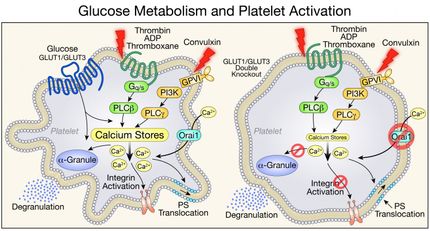Celera Diagnostics Identifies Gene Variants Associated With Late-Onset Alzheimer's Disease
Findings May Have Pharmacogenomic Implications for Therapies
Advertisement
Celera Diagnostics announced it has identified genetic variants associated with late-onset Alzheimer's disease. The findings, to be published online this week in the journal Proceedings of the National Academy of Sciences, may have pharmacogenomic implications for drugs in development as well as current and future therapies for Alzheimer's and other neurodegenerative diseases. The full-text article will be available online at www.pnas.org.
These gene variants, also referred to as single nucleotide polymorphisms (SNPs), are in genes for an enzyme involved in glucose metabolism called glyceraldehyde-3-phosphate dehydrogenase (GAPD). The GAPD enzyme is also involved in neuronal apoptosis, or the programmed death of brain cells. The initial association between these SNPs and Alzheimer's disease was discovered in a genotyping study of 282 SNPs on chromosome 12. The initial association with GAPD led the scientists to analyze other genes in the GAPD family on four other chromosomes. They found a significant association between Alzheimer's disease and another GAPD family member (GAPDS), and a compound genotype, or combined set of variants, from three genes on two different chromosomes.
To minimize possible false associations, this candidate gene study employed three well-characterized sample sets collected independently in the United States and United Kingdom, which included genetic samples from a total of 1,089 people with Alzheimer's disease and 1,196 individuals without dementia. Celera Diagnostics conducted this disease association study with scientists from Washington University School of Medicine (St. Louis, MO), University of California, San Diego (La Jolla, CA), the National Institute on Aging (Bethesda, MD), Cardiff University, Wales College of Medicine (Cardiff, UK) and King's College London (London, UK).
"Systematic screens of the genome in multifactorial diseases such as late-onset Alzheimer's disease have the potential to shed new light on known pathways and reveal new pathways of disease pathogenesis. This new understanding of the mechanisms of disease should lead to improved diagnostics and therapeutics," said Alison Goate, Ph.D., Samuel & Mae S. Ludwig Professor of Psychiatry, Neurology & Genetics at Washington University School of Medicine.
Last month, scientists in France reported that GAPD also has a role in modifying a receptor (GABAa) involved in the transmission of signals between nerves. The GABAa receptor is a drug target under development by many companies in the areas of anxiety disorders, epilepsy and cognition.
"Several pharmaceutical companies are developing drugs for neurodegenerative diseases which may act through a GAPD/GABAa mechanism or are based on inhibition of GAPD," said Thomas White, Ph.D., chief scientific officer, Celera Diagnostics. "The combination of our association of GAPD and Alzheimer's disease along with these recently published findings on GAPD and its role in neurotransmission may ultimately lead to better methods of treatment and targeted therapies for neurological disorders."
"These findings were enabled by the powerful genomics discovery platform at Celera Diagnostics which we have used to identify genetic markers in cardiovascular disease, rheumatoid arthritis and other autoimmune conditions, cancer, and liver disease as well as Alzheimer's disease," said Kathy Ordoñez, president of Celera Diagnostics. "These discoveries provide us with a better understanding of human biology and are expected to result in new diagnostic, pharmacogenomic and therapeutic products."
With the completion of this positional candidate gene study, including another study of approximately 2500 variants on chromosomes 9 and 10, Celera Diagnostics is now conducting a functional genome scan in Alzheimer's disease through a collaboration with Merck & Co., Inc. that was announced in July. Celera Diagnostics' functional genome scan looks at SNPs in thousands of genes across all chromosomes that are predicted to change the amount, function or stability of proteins.

























































